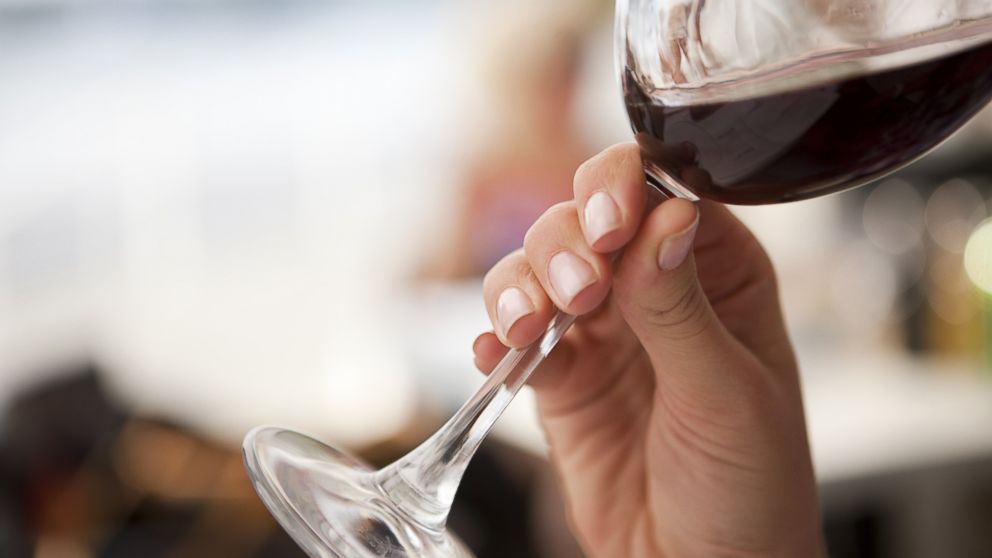3 Things You Need to Know About Alcohol and Breastfeeding
How to drink responsibly without endangering your baby.

April 10, 2014— -- intro: The message about drinking alcohol while you’re pregnant is pretty clear: It’s seriously harmful for babies, so don’t do it. But what about drinking when you’re breastfeeding? That’s way less precise.
Just ask Tasha Adams, the 28-year-old mother of three who was arrested for allegedly endangering the welfare of her then-six-month-old daughter after drinking while breastfeeding at an Arkansas restaurant.
The details of the case are murky. Adams said she only had two beers over the course of two hours. An off-duty waitress at the restaurant claimed Adams was drinking copious amounts of hard liquor and that her baby—who is now 8 months old—was “getting fussy.”
The waitress called the police who arrested Adams. But the officers themselves weren’t entirely sure what to do. Turns out drinking while nursing isn’t illegal in Arkansas. In mid March, the charges against Adams were dropped. The waitress has since been fired.
6 Weird Ways Alcohol Affects Your Body
Adams maintains she wasn’t doing anything wrong from a parenting standpoint. “I’ll say it till the day I die,” Adams told ABC’s 20/20. “I was sober enough to breastfeed my kid.”
Drinking while nursing may not be illegal, but experts say large amounts of alcohol can be harmful for a breastfeeding baby. So are smaller amounts safe? And if so, how much is too much? That’s less clear.
“It’s definitely gray,” says Catherine Herway, MD, assistant director of maternal fetal medicine at Staten Island University Hospital. There just aren’t enough good-quality studies to give us the full picture, she adds.
Mothers of newborns less than three months old should be extra careful about drinking as the baby’s brain is still developing and very vulnerable, says Beth Conover, a nurse practitioner at the University of Nebraska Medical Center in Omaha and a member of the board of directors of MotherToBaby, a non-profit organization that provides information to mothers and healthcare professionals about alcohol and medication exposure during pregnancy and breastfeeding.
Studies have also shown that when there’s alcohol in breast milk, babies drink less and may not grow as well, Dr. Herway says. One study found that when mothers had more than one drink daily during breastfeeding their babies had impaired motor development (but not mental development) at age 1, though a later study did not duplicate that finding.
10 ‘Vices’ That Are Actually Good for You
And it’s an old wives’ tale that a small amount of alcohol can actually help milk letdown, or the release of milk. The American Academy of Pediatrics says alcohol is not a galactagogue, meaning it doesn’t improve milk production, or milk letdown. However, several studies have shown that drinking beer can increase levels of the hormone prolactin, which helps in the creation of breast milk. Researchers note that polysaccharides from barley and hops are responsible—so non-alcoholic beer has the same effect.
That said, there are ways to drink responsibly without endangering your baby. Here are three things you need to know about alcohol and nursing.
quicklist: 1category: What You Need to Know About Alcohol and Breastfeeding title: Less Is Moreurl:text: Breastfeeding or not, women and men should not drink more than the amounts recommended by leading health organizations, Conover says. For women, that’s one drink per day.
The American Academy of Pediatrics policy on breastfeeding says that while alcohol intake should be limited, an occasional drink is acceptable. Specifically, the AAP says nursing moms should have no more than 0.5 grams of alcohol per kilogram of body weight—which for a 60-kilogram mother (about 130 pounds), is about 2 ounces of liquor, an eight-ounce glass of wine, or two beers. These measurements are slightly larger than “standard” drink sizes of about 1.5 ounces of liquor, 5 ounces of wine, or 12 ounces of beer. The AAP’s recommendation is based on what’s safe for the baby, not the amount that’s beneficial for your long-term health.
10 Ways to Boost Your Odds of Getting Pregnant
quicklist: 2category: What You Need to Know About Alcohol and Breastfeeding title: Timing Is Everythingurl:text: Don’t breastfeed your baby as you’re drinking or right after drinking. “If a mom is going to drink alcohol, she should wait at least three to four hours until breastfeeding the baby,” Dr. Herway says. (The American Academy of Pediatrics says to wait a minimum of two hours.)
“The amount of alcohol in breast milk is very similar to the amount in the woman’s blood and alcohol is a fast-acting drug,” explains Conover. “It peaks pretty fast after you drink. . . It moves in and out of milk.”
Alcohol could take longer to peak in some women, so pay attention to how you feel in addition to how long it’s been since you finished your drink. “If you’re still feeling woozy, it’s like the canary in the coal mine,” says Conover. “The alcohol level is [still] too high in the blood stream and in the breast milk.”
quicklist: 3category: What You Need to Know About Alcohol and Breastfeeding title: Plan Ahead When Possibleurl:text: If you know you’re going to drink and your baby will need to eat not long after, make sure you have some stored breast milk or formula ready to go, says Conover.“We get a lot of calls [from mothers] on St. Patrick’s Day and New Year’s Eve,” Conover says. “They’re calling because they’d like to still have a life and they want to take good care of their babies. They’re responsible.”
If you do bottle-feed your baby after having a drink, you can “pump and dump” to alleviate breast pain that may result from skipping a feeding.
This article originally appeared on health.com.




